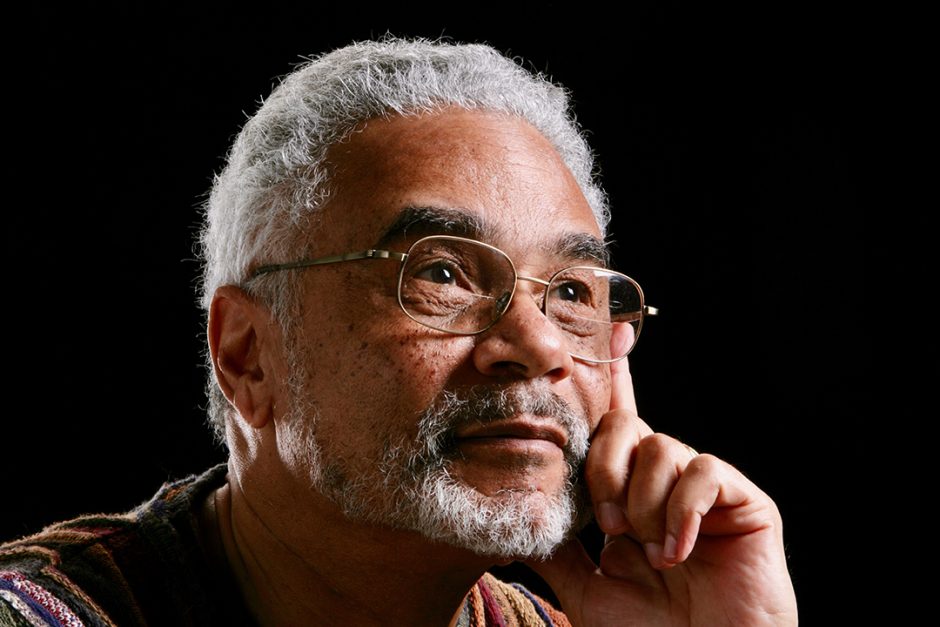
Updated event details
This event has been rescheduled for Wednesday, March 8, at 6:30 p.m.Jan. 17, 2023
Contact: Marcus Wilkins, wilkinsm@missouri.edu
Perhaps no one better knows the words and work of Martin Luther King Jr. than Clayborne Carson, keynote speaker for the University of Missouri Celebrates Martin Luther King Jr. event that will take place at 6:30 p.m. Wednesday, March 8, at the State Historical Society of Missouri.
Selected by King’s widow, the late Coretta Scott King, in 1985 to edit the enormous trove of writings her husband left behind, Carson has pored over an incalculable number of personal and public papers written by the civil rights leader.
A first-generation college graduate who attended the 1963 March on Washington where King delivered his “I Have a Dream” speech, Carson has dedicated his life to the civil rights movement and its scholarship. He has served as founding director of the Martin Luther King Jr. Research and Education Institute at Stanford University, written several books and articles on the civil rights movement, and served on numerous committees and appointments related to the Black struggle and human rights.
His latest endeavor, the World House Project at Stanford University, is an effort to provide “the world with empowering resources and strategies that engender solidarity among all peoples to realize King’s vision.”
Read on for a Q&A with Carson to learn about his work.
What were your initial thoughts when you took on the King’s Papers Project?
It will take us far longer to edit Dr. King’s papers than it took him to live his life.
You can find a lot of the documents at Boston University, at the King Center and other places. But for a historian such as myself, “his papers” means all his papers. If he wrote a letter to someone — say to (civil rights activist) Roy Wilkins and the NAACP — those letters are among the recipients’ papers, not King’s papers. So, you have this almost endless process through which you can find about 90% of what you want, but that remaining 10% is very difficult to find but often the most interesting and revealing.
What are the pieces of King’s writing that you find particularly interesting?
King wasn’t just giving speeches and sermons. He was also interacting with other leaders, supporters and associates. Those materials can also be fascinating.
What was his relationship like with presidents Lyndon Johnson and John Kennedy? What was his relationship with Birmingham civil rights activist Fred Shuttlesworth? What were his interactions with the people who taught and advised him, such as Morehouse College president Benjamin Mays? What did he know about Mahatma Gandhi, both before and after his 1959 trip to India? How did he meet Coretta, and what was her role in the civil rights movement and the preservation of her husband’s legacy?
What will be the main points of your message at the University of Missouri?
I try to imagine what King would say today about the world situation as it exists.
What does “human rights” mean as a goal? What are the means to get to that goal, and that’s where nonviolence comes in. It’s an urgent question and there’s a lot of division today. But there was a lot of social conflict in King’s time, too.
The basic idea of human rights is that every human being should have them. We tend to think more of civil rights or the rights we have as Americans. But what are our obligations to every other human being? Is that something people give a lot of thought to? Probably not, but it’s also the basis of the world’s major religions.
As humans, we tend to resolve our conflicts through violence. And it’s something all mammals have in common — often using violence and other forms of power to get what they want. King was asking, “Is there another way?” Which is one reason why we have a King holiday.
The theme of 2023’s MU Celebrates Martin Luther King Jr. is “Looking back to move forward.” How do you interpret that?
That’s what he would want. If King had any say in the matter, we would not have created a national holiday in his honor. What he would have wanted is that in the year 2023 people are still following his ideas — not idolizing him as a heroic figure.
I was involved in helping build the Martin Luther King Jr. Memorial in Washington, D.C., but the statue there is not the Martin I have come to know through my research. It memorializes how many people admire him enough to say that he deserves a statue. During his short 39 years, he accomplished a lot. And the fact is that when I started my work, I was already older than he ever would become. So, you have to I have to admire what he was able to accomplish in just a dozen years or so years — from Montgomery to Memphis.



